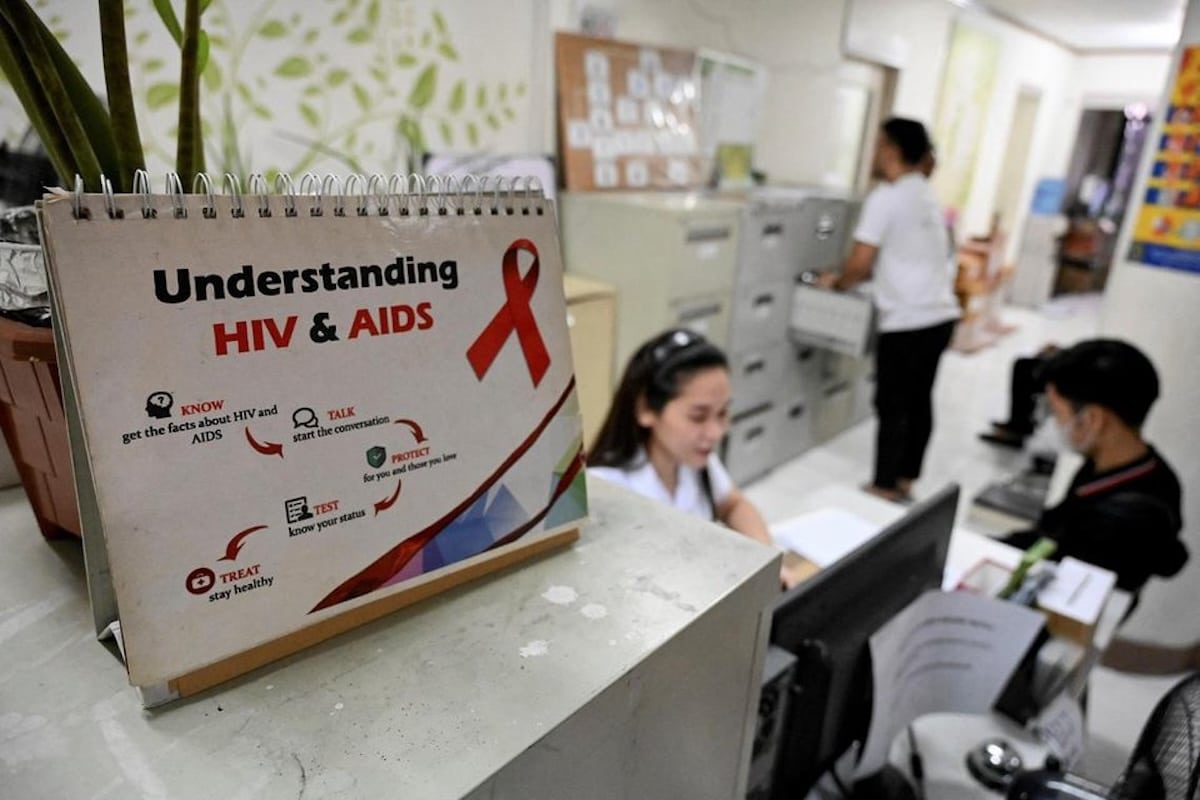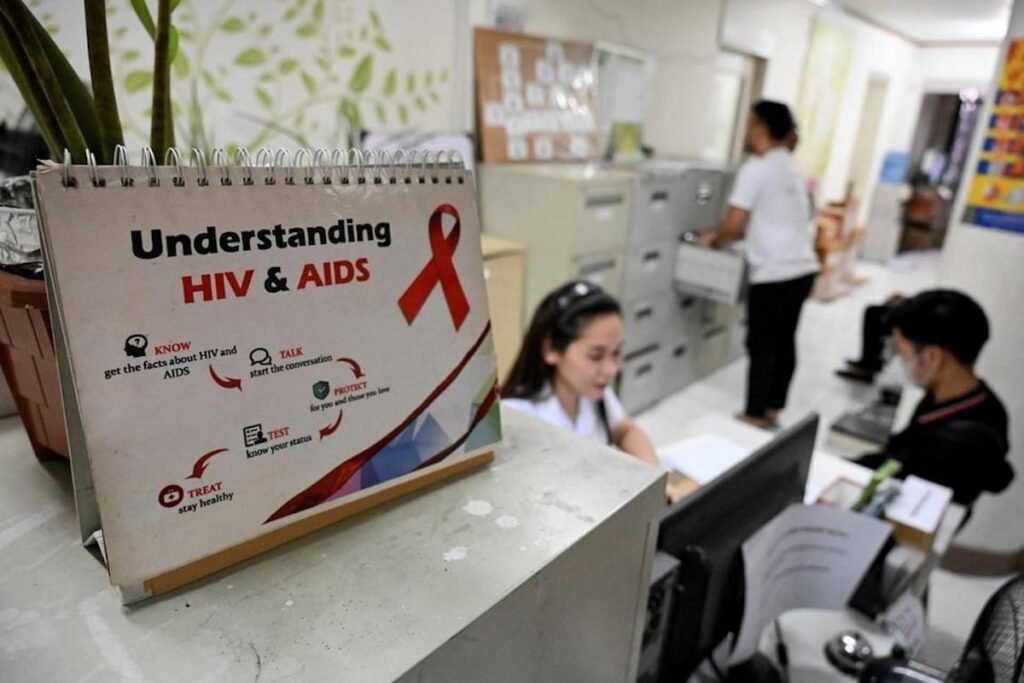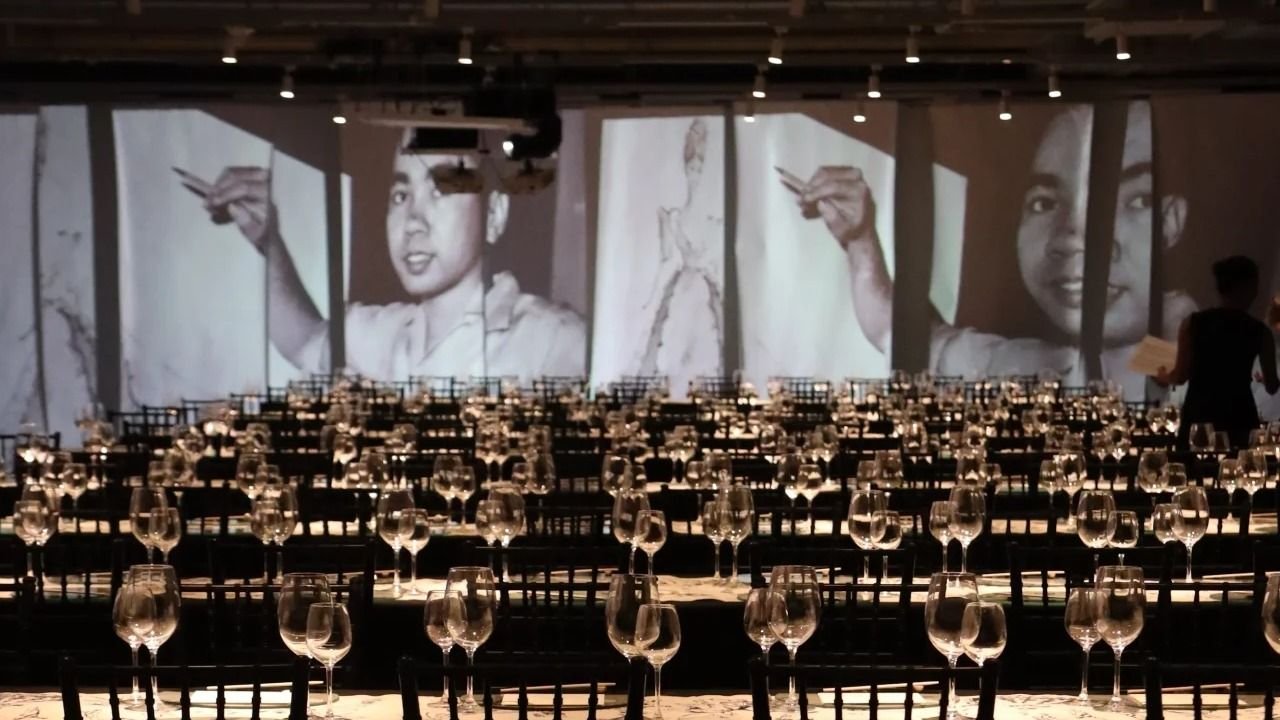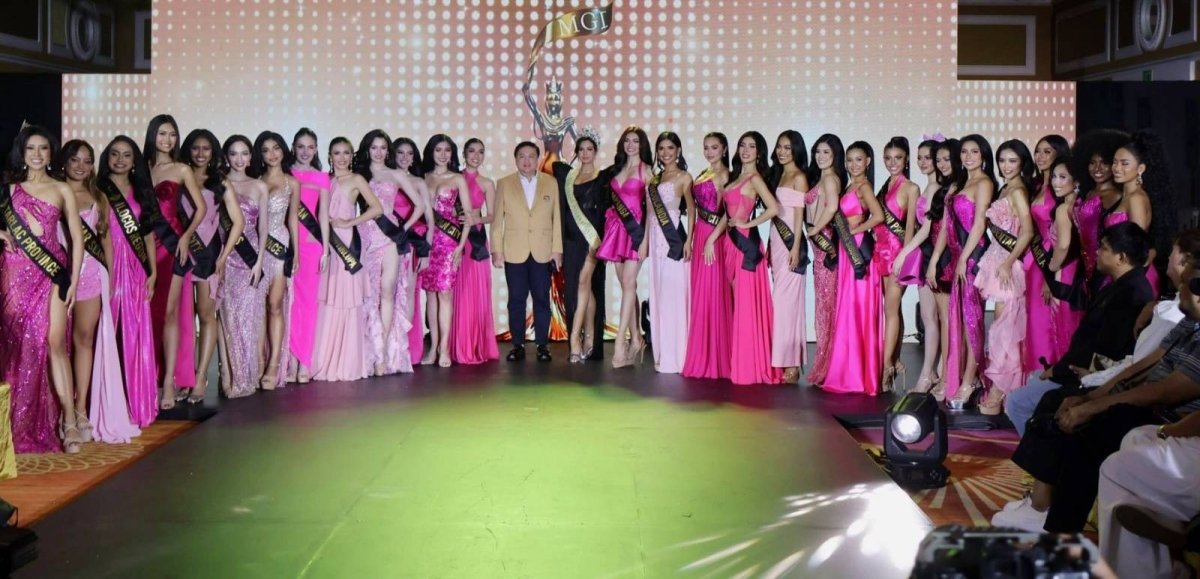
As of March 2025, over 139,610 Filipinos are living with HIV, and the government estimates this number will rise to 252,000 by the end of 2025. PHOTO: AFP
MANILA, Philippines – Two red lines were all it took to confirm what 26-year-old Luke Galade (not his real name) had already prepared himself for.
There were no tears, no shock, just quiet acceptance for the freelance writer and former teacher when he tested positive for HIV in March 2024.
The signs were there: a persistent fever, sudden hair loss, shortness of breath and rashes on his palms. Deep down, Mr Galade suspected he had contracted the virus from his former boyfriend, whom he left three months earlier after discovering he had been the third party in a relationship.
“I immediately accepted my fate,” Mr Galade told The Straits Times. “Over time, I felt anger towards my ex, but I didn’t reach out. Then came regret, because I’ve always dreamt of working abroad. But there are countries that don’t allow people like me, who live with HIV, to enter their territories.”
READ: HIV cases in PH surge 500%, prompting DOH call for health emergency
Mr Galade is part of a troubling trend in the Philippines, where new HIV infections, especially among youth, are rising at a pace unmatched in the Asia-Pacific, according to the Joint United Nations Program on HIV/Aids (Unaids).
Data showed that new infections in the region have declined by 13 percent since 2010, but the Philippines’ 543 per cent surge in new cases stands out among countries like Bangladesh (20 percent) and Papua New Guinea (104 percent) where HIV cases continue to rise sharply.
As at March 2025, over 139,610 Filipinos are living with HIV, and the government estimates this number will rise to 252,000 by year end.
Experts say the surge is driven by a mix of factors such as poor sex education, unprotected sex among those who meet through dating apps, persistent stigma and cultural shame. The country’s conservative, predominantly Christian culture has also made open discussions about sex and HIV difficult, even within families.
READ: DOH: Number of Filipinos with HIV may reach 448,000 by 2030
The Department of Health (DOH) now records 57 new HIV cases daily, when the country recorded just six new infections a day in 2010. Most of the new cases are still tallied among males having sex with males, similar to previous years. DOH estimates there are about 100,550 unreported people living with HIV (PLHIV).
“What bothers me is the shift in age group. A decade ago, most new cases were aged 25 to 34. Now, almost 50 per cent are aged 15 to 24. That to me is the alarming part,” said Health Secretary Teodoro Herbosa.
The youngest diagnosed this year was a 12-year-old child in the island province of Palawan, which Dr Herbosa believes was a case of sexual abuse. He said the country’s growing HIV incidence among minors may be linked to grooming and exploitation, including by foreign sex offenders targeting impoverished areas.
He said many young Filipinos now have wider access to pornography and engage in sex with multiple partners, yet remain unaware of how sexually transmitted diseases like HIV are transmitted. He added that most were born after the height of the Aids crisis in the 1980s and lack a full understanding of the virus’ dangers.
READ: Lack of awareness among youth blamed for rise in HIV cases
“There are spas that operate like brothels. There is anonymous, unprotected sex behavior, and I discovered there are also orgies happening where people use drugs. If you put that all together with the lack of sex education and the internet, pornography, it all adds up,” said Dr Herbosa.
To respond more aggressively, the DOH in June recommended that President Ferdinand Marcos Jr declare HIV a national public health emergency.
Such a move would allow the government to bypass bureaucratic delays, unlock emergency funds more quickly, and coordinate HIV-related efforts across multiple agencies. Mr Marcos has yet to respond.
“We need a whole-of-government and whole-of-society approach, just like how we fought Covid-19,” said Dr Herbosa.
Policy blind spots
The Philippines in 2018 passed the HIV and Aids Policy Act, hailed as a milestone for enshrining access to testing and treatment as a human right. It also lowered the age of consent for HIV testing from 18 to 15, allowing adolescents to get tested without parental permission.
The government has since expanded HIV services nationwide. Dozens of state-run social hygiene clinics now offer free testing, anti-retroviral treatment, counseling and education. The country also has a Reproductive Health Law mandating universal access to contraceptives at these clinics.
A handful of non-governmental organizations (NGOs) like the LoveYourself group provide similar services, including free HIV self-test kits.
Some of these NGOs, however, are still recovering from funding disruptions caused by US President Donald Trump’s foreign aid freeze in early 2025. The move abruptly halted millions of dollars in American support for global health programs, disrupting HIV prevention and outreach in countries like the Philippines that rely heavily on foreign assistance.
But even when services are available, barriers remain. Minors who test positive can get treatment for free if they are able to provide a parent’s health insurance details, since HIV/Aids treatment is covered by the government.
“They don’t want their parents to find out, so they refuse treatment,” Dr Herbosa said. “And then they come back to us three years later with advanced HIV or full-blown Aids.”
Dr Herbosa said it is best that PLHIV take their anti-retroviral therapy medication as early as possible, as it suppresses the virus, reduces risk of transmission and allows those diagnosed to live long, healthy lives.
The country’s testing rates remain low. According to DOH data, only 59 percent of key populations, including men who have sex with men, are getting tested. Of those who test positive, only 44 percent are receiving treatment.
Dr Herbosa also noted that many patients are being diagnosed late. Their CD4 counts, which measure immune system strength, are already low by the time they get tested, indicating they have been infected for months.
He urged Filipinos to consider regular testing and to take advantage of free self-test kits and PrEP, or pre-exposure prophylaxis, a medicine for HIV-negative individuals that reduces the risk of getting the disease.
“Abstinence if you’re young. If you don’t want abstinence, at least practice protection or know the status of the person you’re going to have sex with. Use modern protection methods like PrEP,” he advised.
Stigma and sex education gaps
Many Filipinos are still afraid of being seen in state-run social hygiene clinics, while others do not know enough about HIV or how it spreads, said gender and sexual health physician Deano Reyes.
It is a paradox in the Philippines, where LGBTQIA+ celebrities are widely accepted in mainstream media, yet laws protecting their rights have yet to be passed by Congress.
“It’s a classic Filipino thinking that, ‘Gayness is something I tolerate. But if someone in my family is gay or is HIV-infected, it’s an entirely different story.’ So it’s nuanced. It’s the cultural and religious beliefs that put a stigma on HIV here,” he said.
Sex education is still widely seen as taboo, even though the law has required it in public schools since 2017. Advocates say implementation has been patchy at best, with many schools skipping lessons due to pressure from religious groups which argue it would promote pre-marital sex among youth.
A Bill filed earlier this year seeking to require private schools – many run by the Catholic Church – to institutionalize sex education also sparked controversy and was ultimately shelved.
Dr Reyes said these policy gaps have left young Filipinos ashamed and ill-equipped to make informed decisions about sex and relationships.
“Studies show that a comprehensive sex education reduces HIV numbers. It allows them to understand when they’re being groomed or when they’re being abused. Overall, it makes them want to have less sex, which is counter to the claim of conservative groups,” he said.
Stigma also persists among those already diagnosed. Dr Reyes said some patients ask for their HIV medicine to be repackaged in vitamin bottles, so their families won’t ask questions.
It is something Mr Galade has experienced at first hand. He considers himself lucky that his relatives accepted his diagnosis, but he still had to explain how HIV is and is not transmitted.
“Some of their actions are bordering on ignorance. They still don’t like it if I grab food straight from the serving bowl,” he said. “They prefer that I have my own utensils and don’t share. But I understand, because acceptance is step by step here.”
Based on his latest blood test in January 2025, Mr Galade’s HIV viral load is now undetectable, which means he can no longer transmit the virus through sex. Still, he said dating remains difficult. Conversations often fizzle out once he discloses his status.
“So the stigma is still there,” he said.
Hope on the horizon
Despite these setbacks, advocates are pushing forward.
Filipino public figures such as Miss Universe winners Pia Wurtzbach and Catriona Gray continue to promote HIV awareness.
In 2024, drag queen Myx Chanel came out as a PLHIV on the hit reality TV show Drag Race Philippines, saying: “I want to show the world how strong and beautiful people living with HIV can be.”
Meanwhile, the DOH is working with the education department to launch a peer-to-peer counseling program and update sex education materials in schools. It is also seeking to improve condom accessibility and scale up PrEP distribution.
Dr Herbosa said government agencies are also exploring ways to strengthen family dynamics and instil core health values among Filipino youth, so they can make responsible choices when it comes to relationships and sex.
For Mr Galade, being open about his condition is a form of self-acceptance and hope that Filipinos will become more understanding and be proactive in responding to the HIV crisis.
Your subscription could not be saved. Please try again.
Your subscription has been successful.
“You should not judge people just because of their status,” he said. “Jesus told us to love our neighbour without condition, so why shouldn’t you?” /dl











